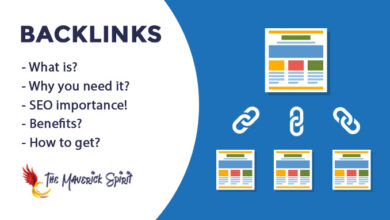Enhancing Citizen Engagement in Smart Cities: Strategies for Success

Introduction
In the period of quick urbanization and mechanical headway, savvy urban communities have arisen as a signal of development and proficiency. These metropolitan habitats influence state-of-the-art innovation to upgrade assets of the board, further develop the foundation, and improve the general personal satisfaction of occupants. Be that as it may, at the core of each and every fruitful smart cities lies strong resident commitment – the dynamic cooperation of occupants in molding the fate of their networks. In this article, we will investigate the significance of resident commitment to shrewd urban areas and talk about methodologies for encouraging significant communications between city specialists and occupants.
The Significance of Resident Commitment
Resident commitment is fundamental for the drawn-out supportability and progress of shrewd urban communities. By including occupants in dynamic cycles, policymakers can acquire important bits of knowledge about the requirements, inclinations, and needs of the local area. This cooperative methodology not only encourages a feeling of pride and having a place among inhabitants yet in addition guarantees that metropolitan improvement drives are custom-fitted to meet their particular prerequisites.
Additionally, resident commitment advances straightforwardness and responsibility in administration, building trust among residents and city specialists. At the point when occupants feel appreciated and esteemed, they are bound to effectively take part in city exercises, add to local area improvement projects, and comply with guidelines pointed toward advancing the benefit of everyone.
Methodologies for Upgrading Resident Commitment
- Digital Stages and Versatile Apps: In the computerized age, innovation fills in as an incredible asset for associating residents with their neighborhood states. Shrewd urban communities can use computerized stages and portable applications to work with two-way correspondence among inhabitants and city specialists. These stages can be utilized to scatter data about forthcoming activities, accumulate criticism on open approaches, and report issues like potholes, streetlamps, or burn-through administration progressively. By furnishing inhabitants with simple admittance to data and administrations, computerized stages advance straightforwardness and smooth out regulatory cycles.
- Community Studios and Municipal Center Meetings: Notwithstanding the commonness of advanced correspondence, up close and personal collaborations stay significant for cultivating significant discourse and building trust inside networks. Brilliant urban areas can coordinate local area studios, official Q&A events, and public gatherings to connect with occupants in conversations about metropolitan preparation, framework improvement, and maintainability drives. These occasions give an open door to occupants to voice their interests, share thoughts, and team up with city authorities to track down answers for normal difficulties. By making a space for open exchange and helpful criticism, nearby legislatures can reinforce associations with residents and encourage a feeling of urban pride.
- Citizen Warning Sheets and Committees: Laying out resident warning sheets and councils permits occupants to assume a more dynamic part in molding public strategy and dynamic cycles. These warning bodies, involving local area individuals with different foundations and skills, give significant experiences and suggestions to city authorities on a large number of issues, from transportation and lodging to ecological preservation and general well-being. By including residents in warning jobs, savvy urban areas can guarantee that arrangements and drives mirror the requirements and yearnings of the local area they serve.
- Data Perception and Community Commitment Tools: Information representation devices and metro commitment stages can engage occupants to investigate and examine metropolitan information, for example, air quality, traffic examples, and energy utilization, in an easy-to-understand way. By making information available and reasonable to the overall population, these apparatuses empower residents to settle on informed conclusions about their regular routines and support for change in their networks. In addition, information-driven bits of knowledge can assist city specialists with recognizing regions for development, assigning assets all the more successfully, and measuring the effect of their arrangements and drives.
- Education and Mindfulness Campaigns: At long last, schooling and mindfulness crusades assume a significant part in advancing resident commitment and engaging occupants to become dynamic members in the improvement of their urban communities. Savvy urban areas can sort out studios, workshops, and instructive projects to bring issues to light about central points of interest confronting the local area, for example, environmental change, metropolitan maintainability, and computerized education. By giving occupants the information and abilities they need to connect genuinely in city life, these drives establish the groundwork for a more educated and engaged populace.
Last Thought
All in all, resident commitment is a foundation of smart cities improvement, driving development, inclusivity, and manageability. By taking on procedures to improve resident commitment, shrewd urban communities can bridle the aggregate insight and imagination of their occupants to address complex metropolitan difficulties and assemble flourishing networks for a long time into the future. From computerized stages and local area studios to resident warning sheets and training efforts, there are endless open doors for city specialists to cultivate significant cooperation with occupants and make a more comprehensive and participatory metropolitan climate. By focusing on resident commitment, brilliant urban areas can open the maximum capacity of their most noteworthy resource – individuals who call them home.



